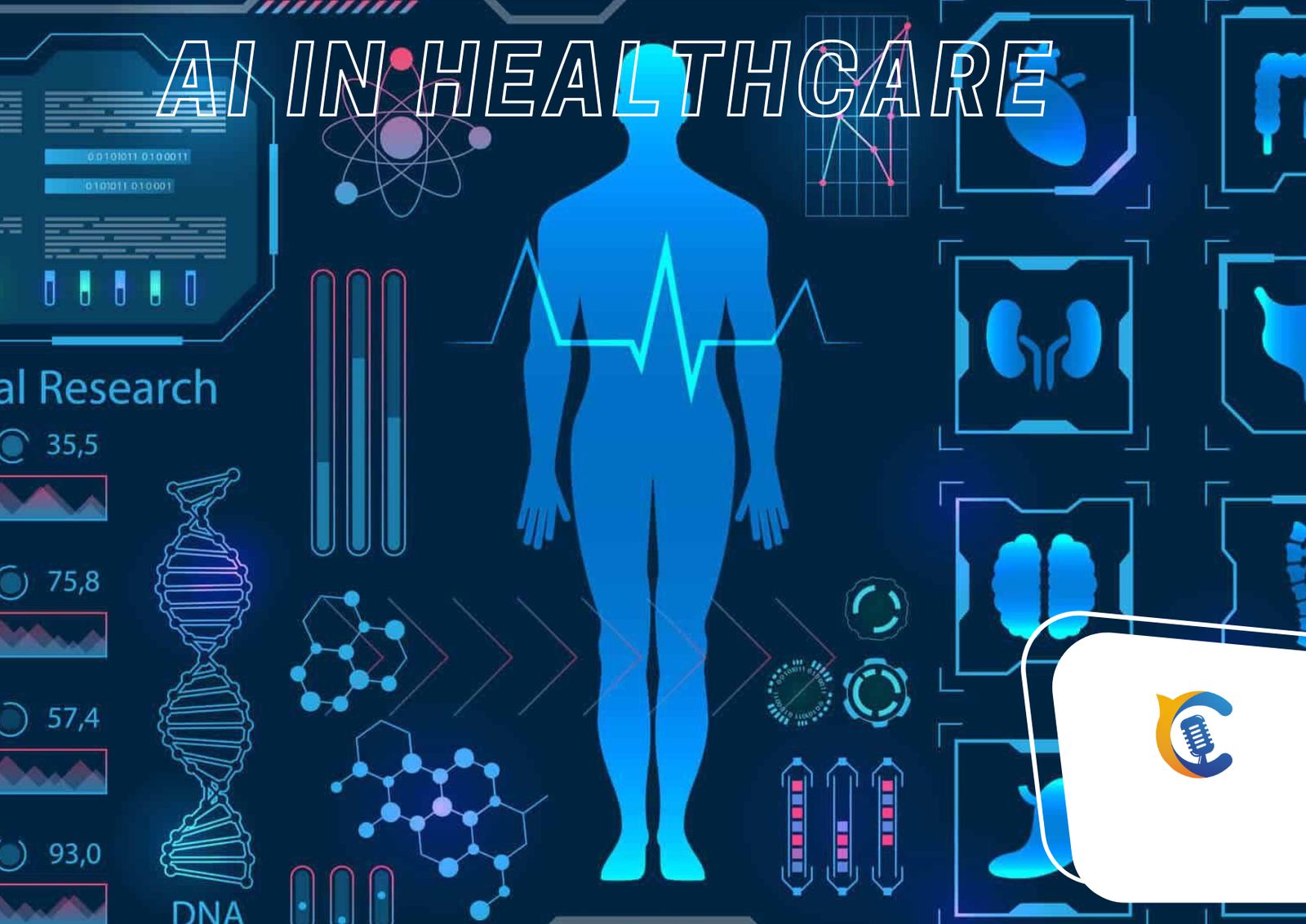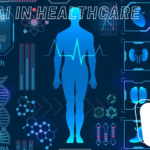Artificial Intelligence / AI / AI in Healthcare / AI in Healthcare 2023 / AI in Health
Table of Contents
Introduction
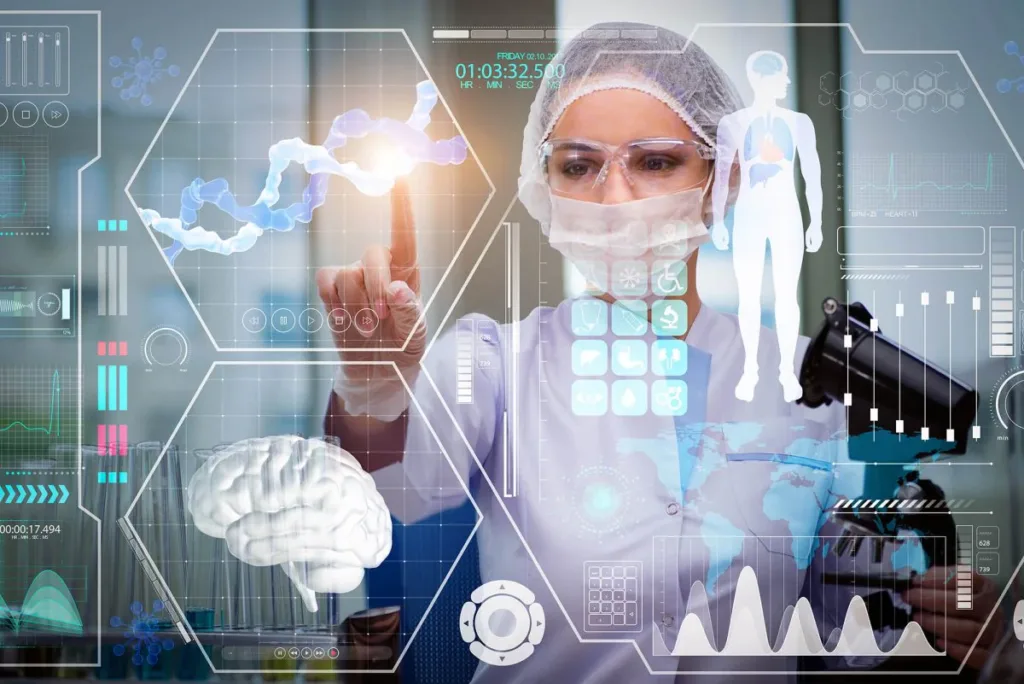
In recent years, the integration of Artificial Intelligence (AI) in healthcare has brought about revolutionary changes, especially in medical research, diagnosis, personalized treatment plans, and drug discovery. The healthcare industry is witnessing rapid advancements due to AI’s ability to analyze extensive datasets efficiently, uncover patterns, correlations, and risk factors that were once elusive. In this blog, we will explore the diverse applications of AI in healthcare, showcasing its immense potential to improve patient outcomes and reshape modern medicine.
AI in Medical Research

Medical research serves as the bedrock of progress in healthcare, and AI has proven to be an invaluable ally in expediting this process. AI algorithms can swiftly analyze vast amounts of data, empowering researchers to identify patterns, correlations, and potential risk factors more efficiently than traditional methods. This analytical power is especially evident in genomics, proteomics, and patient data analysis, leading to groundbreaking insights into diseases, genetic predispositions, and potential treatment targets.
Additionally, AI has significantly transformed drug discovery by enabling virtual drug screening. By simulating interactions between numerous compounds and targeted biological structures, AI expedites the identification of potential drug candidates, shortening the drug development timeline and reducing costs. This approach has paved the way for exploring novel therapeutic options for various diseases.
AI in Diagnosis and Personalized Treatment Plans

Accurate and timely diagnosis is paramount for effective treatment, and AI is playing an increasingly crucial role in this domain. Machine learning algorithms, when trained on extensive medical imaging datasets, can detect abnormalities with remarkable precision, facilitating early detection of diseases such as cancer, cardiovascular conditions, and neurological disorders. Furthermore, AI-driven diagnostic tools offer valuable insights to healthcare providers, assisting them in making well-informed decisions.
Personalized treatment plans are another area where AI excels. Each patient’s response to treatment varies based on their unique genetic makeup, lifestyle, and environmental factors. AI algorithms analyze individual patient data, predict treatment outcomes, and recommend personalized plans tailored to their specific needs. This approach optimizes treatment efficacy, minimizes adverse effects, and enhances patient satisfaction.
AI in Drug Discovery
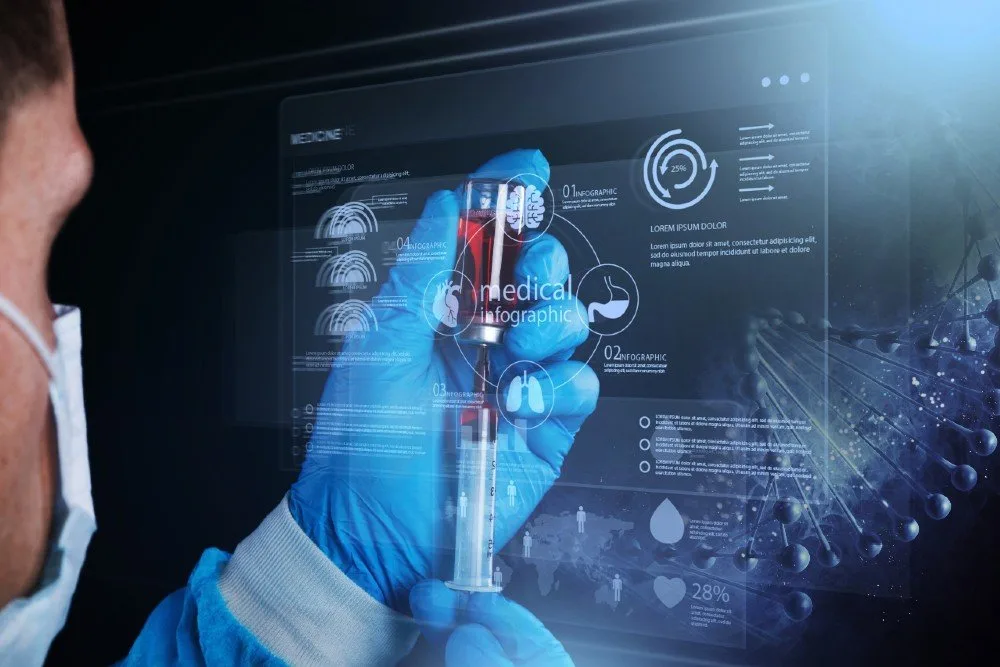
Conventional drug discovery is often costly, time-consuming, and carries a low success rate. AI has emerged as a transformative solution to these challenges. By utilizing machine learning algorithms and predictive modeling, AI efficiently analyzes vast databases of chemical compounds and biological data to identify potential drug candidates. This significantly speeds up the early stages of drug discovery, allowing researchers to focus on the most promising candidates.
Moreover, AI has the potential to repurpose existing drugs for new indications. Through the analysis of drug interactions, mechanisms of action, and disease pathways, AI identifies drugs that might be effective in treating conditions different from their original intended use. This approach opens new avenues for treating various diseases and could potentially lead to groundbreaking therapeutic breakthroughs.
Challenges and Ethical Considerations

Despite the promising prospects, the widespread adoption of AI in healthcare is not without challenges. A primary concern is data privacy and security. AI systems heavily rely on patient data for training and optimization, necessitating robust measures to protect sensitive information and maintain patient trust and confidentiality.
Additionally, ensuring that AI algorithms remain unbiased and do not perpetuate existing healthcare disparities is of utmost importance. Biases in training data can lead to unequal treatment recommendations, exacerbating healthcare inequalities among different demographic groups. Vigilance and rigorous testing of AI systems are necessary to ensure fairness and equity.
Collaboration and Data Sharing

One of the keys to maximizing the potential of AI in healthcare lies in collaboration and data sharing among researchers, healthcare institutions, and technology companies. By pooling together diverse datasets, AI algorithms can be trained on more comprehensive and representative data, leading to more accurate and reliable outcomes. However, it is vital to strike a balance between data sharing and maintaining patient privacy, adhering to stringent data protection regulations to safeguard sensitive information.
Regulatory Frameworks and Standards

As AI technologies become more prevalent in healthcare, the need for robust regulatory frameworks and standards becomes evident. Governments and regulatory bodies must work closely with healthcare organizations and AI developers to establish guidelines that ensure the safe and ethical use of AI in medical applications. These regulations should address issues related to data privacy, bias mitigation, transparency, and accountability to build public trust and confidence in AI-driven healthcare solutions.
Education and Training
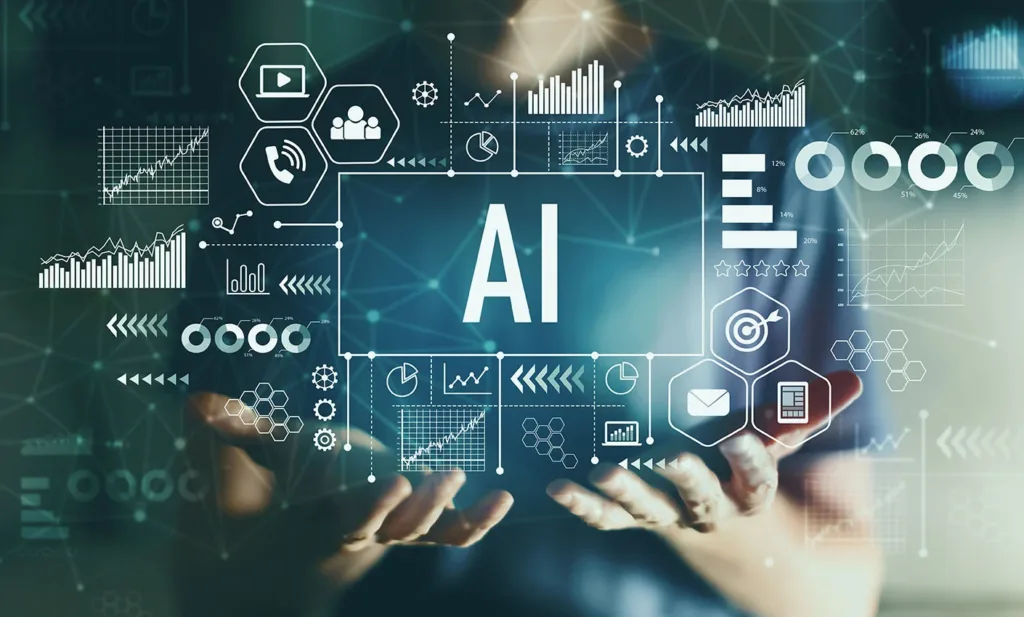
To fully embrace AI’s potential, healthcare professionals must receive proper education and training to effectively use and interpret AI-driven tools. Integrating AI literacy into medical and healthcare curricula can empower clinicians to make informed decisions based on AI-generated insights. Training programs should focus on the ethical implications of AI, emphasizing the importance of ensuring fairness, equity, and patient privacy throughout the AI-driven healthcare process.
Addressing Bias and Ethical Concerns
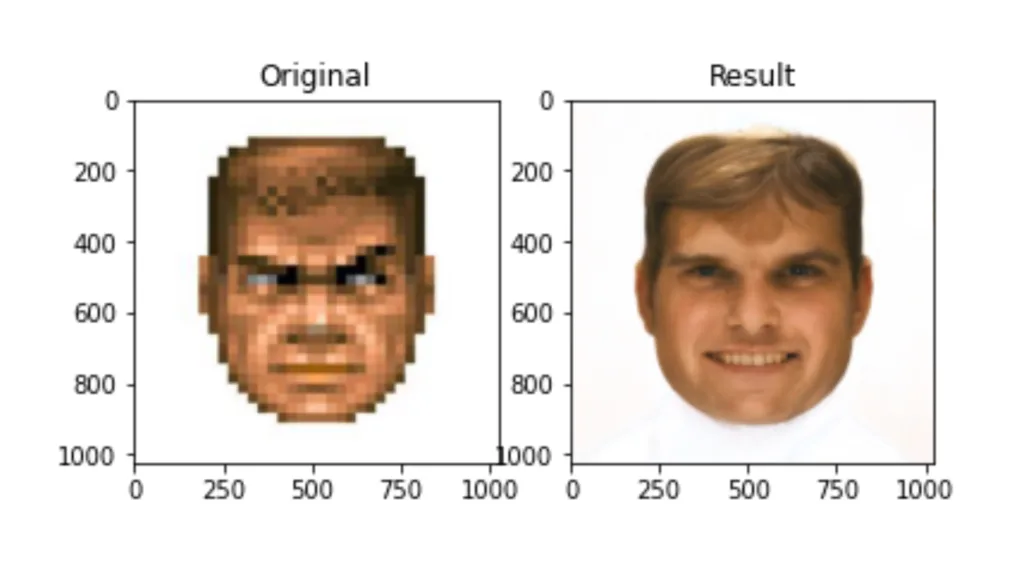
Bias is a significant concern when implementing AI in healthcare. AI algorithms trained on biased datasets can perpetuate existing healthcare disparities, leading to unequal treatment recommendations among different population groups. To combat this issue, AI developers must employ techniques to detect and mitigate bias in AI systems. Regular audits and ongoing evaluations of AI algorithms can help ensure that they remain fair, unbiased, and inclusive.
Transparency and Explainability
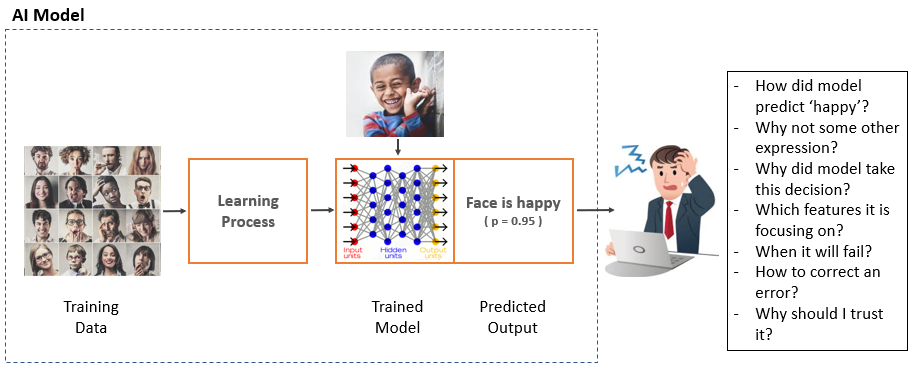
Transparency and explainability are crucial aspects of AI in healthcare, especially in clinical decision-making. AI algorithms should be designed in a way that provides clear explanations for their recommendations, allowing healthcare professionals to understand the reasoning behind AI-generated insights. Transparent AI models build trust, facilitate collaboration between AI systems and human experts, and ultimately enhance patient care.
Monitoring and Evaluation

Continuous monitoring and evaluation of AI applications in healthcare are paramount. Regular assessments of AI systems’ performance, accuracy, and safety are necessary to identify potential issues early and make necessary improvements. Additionally, real-world data on AI’s impact on patient outcomes and healthcare costs should be carefully collected and analyzed to understand its true value and effectiveness.
The Road Ahead

The use of AI in medical research, diagnosis, personalized treatment plans, and drug discovery is undeniably transforming the healthcare industry. By fostering collaboration, setting ethical standards, and addressing challenges such as bias and privacy concerns, we can unlock the full potential of AI to improve patient outcomes, drive medical innovation, and create a more efficient and accessible healthcare system.
The future of AI in healthcare holds tremendous promise, with the potential to revolutionize disease prevention, early detection, and precision medicine. By leveraging the power of AI in conjunction with human expertise and compassion, we can usher in a new era of healthcare that prioritizes individualized patient care, better treatment outcomes, and ultimately a healthier global population.
AI in Healthcare key facts
- AI in healthcare accelerates medical research and breakthroughs.
- AI aids accurate diagnosis with high precision algorithms.
- Personalized treatment plans optimized by AI for better outcomes.
- Drug discovery revolutionized through AI-driven simulations.
- AI-enabled virtual assistants streamline patient care.
- Machine learning predicts patient risk factors more effectively.
- AI algorithms enhance medical imaging interpretation.
- Healthcare chatbots provide 24/7 support and information.
- AI-driven data analytics improves patient outcomes and cost-efficiency.
- Remote monitoring with AI enhances patient management.
Conclusion
AI’s integration in healthcare is transforming the medical landscape and empowering researchers, clinicians, and patients with innovative tools and solutions. From expediting medical research and drug discovery to revolutionizing diagnosis and personalized treatment plans, AI holds the potential to bring significant advancements to the healthcare industry. However, addressing challenges such as data privacy, security, and ethical considerations is essential to harness the full potential of AI and create a healthier future for all.
Read More: Artificial Intelligence / AI / AI in Healthcare / AI in Healthcare 2023 / AI in Health
